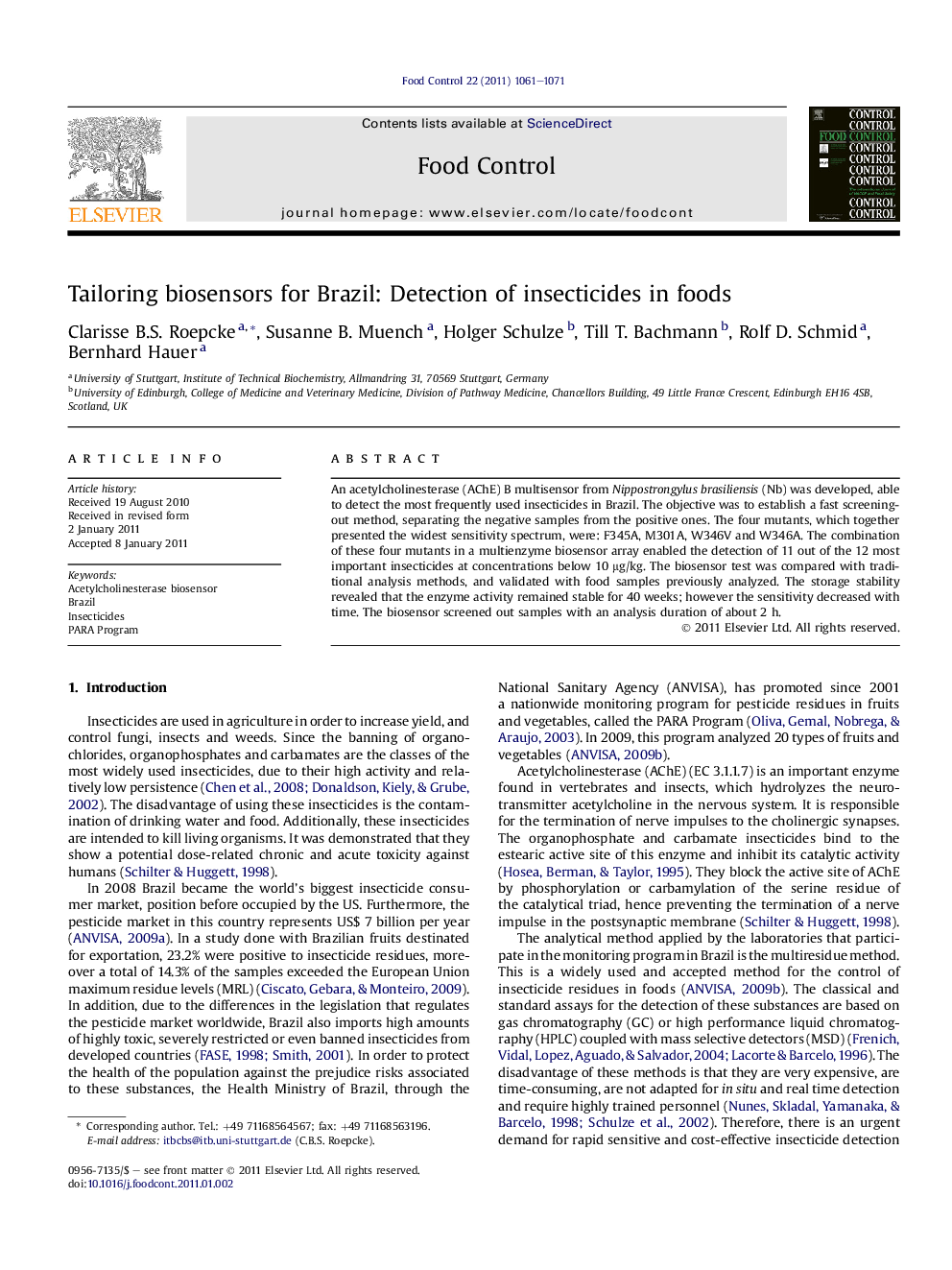| Article ID | Journal | Published Year | Pages | File Type |
|---|---|---|---|---|
| 4559718 | Food Control | 2011 | 11 Pages |
An acetylcholinesterase (AChE) B multisensor from Nippostrongylus brasiliensis (Nb) was developed, able to detect the most frequently used insecticides in Brazil. The objective was to establish a fast screening-out method, separating the negative samples from the positive ones. The four mutants, which together presented the widest sensitivity spectrum, were: F345A, M301A, W346V and W346A. The combination of these four mutants in a multienzyme biosensor array enabled the detection of 11 out of the 12 most important insecticides at concentrations below 10 μg/kg. The biosensor test was compared with traditional analysis methods, and validated with food samples previously analyzed. The storage stability revealed that the enzyme activity remained stable for 40 weeks; however the sensitivity decreased with time. The biosensor screened out samples with an analysis duration of about 2 h.
